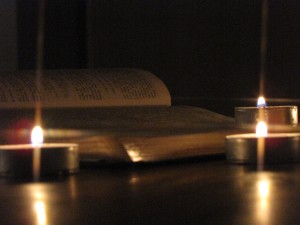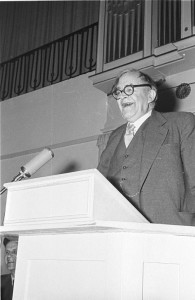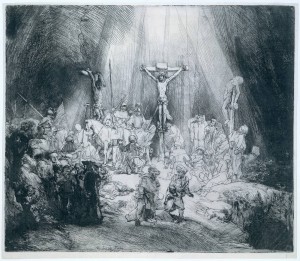To hear my blog post read aloud, just click the play button. If you’re reading this in an email, you may have to click here to hear the post on my site.
Scripture can be difficult to understand.
When taken as a whole, when read as one, consistent story, it is easy to get confused by various passages that seem to state different realities.
One such difficulty is how we are able to accept God’s salvation.
Some passages in Scripture (Ephesians 1 and Romans 9, as only two examples) seem to say that God decrees (or elects) some to be saved and some to be damned.
Other passages in Scripture (Romans 8 and I Peter 1, for example) seem to say that we are given free will in the matter and can accept or reject God’s salvation (having first been given by God the grace to accept). The election comes from God’s foreknowledge, not His decree.
This is, admittedly, a very simplistic version of these complex issues, but it is enough to get us started in our pondering and discussing.
How do we reconcile these? As much as we would wish to sometimes, we cannot ignore the sides of Scripture that are uncomfortable or distressing.
We in our American culture and modern time cringe at the idea of not having complete free will. It goes against everything in us to think that we have no choice in the matter of salvation or that God would create beings in order to damn them.
Yet we cannot throw out Ephesians and Romans.
So where does that leave us?
A man named Karl Barth went the farthest in harmonizing the two varieties of passages. He noticed that in the passages that speak of election, the election is spoken of as in Christ.
We are chosen in Him (Christ) before the creation of the world…God predestined us for adoption as sons through Jesus Christ.
Barth’s idea is that both the election and the rejection spoken of by Scripture was applied to Christ.
Jesus Christ is both fully God and fully man. Two separate natures fully united in one person. Jesus Christ is, then, both the electing God and the elected man, both the subject and the object of election.
God’s welcome and His rejection are both fulfilled in Christ, who was rejected by God for our sake.
Barth writes that “God has given to man the former: election, salvation, and life; for Himself, however, He has chosen the second: rejection, damnation, and death.”
God’s no falls on Christ so that God’s yes can fall on the rest of us.
Is Karl Barth correct?
I have no idea.
I apologize if you were hoping for a definitive answer.
If the greatest theological minds over the centuries have not come to agreement on this, far be it from me to speak otherwise.
Yet Barth’s ideas make sense to me as I study and pray.
What do you think?
Thanks to Todd Daly for introducing me to many of these idea.
Art Credits: photograph of Karl Barth from the German Federal Archive; Three Crosses sketch by Rembrandt





